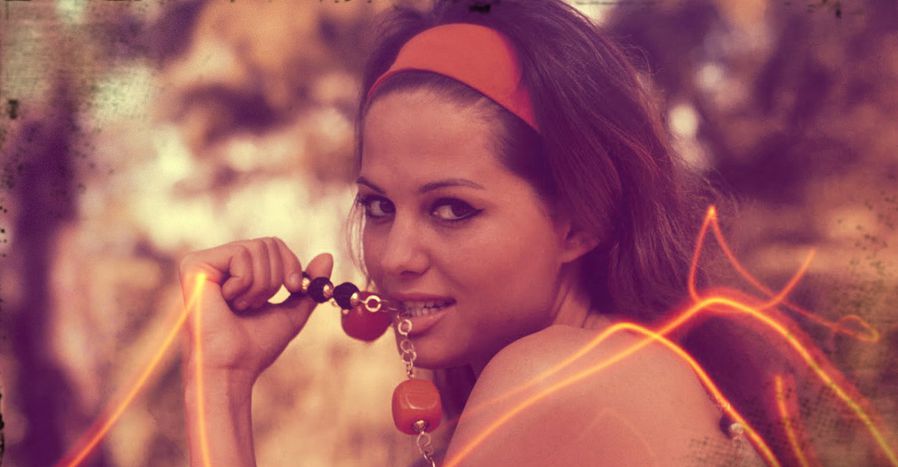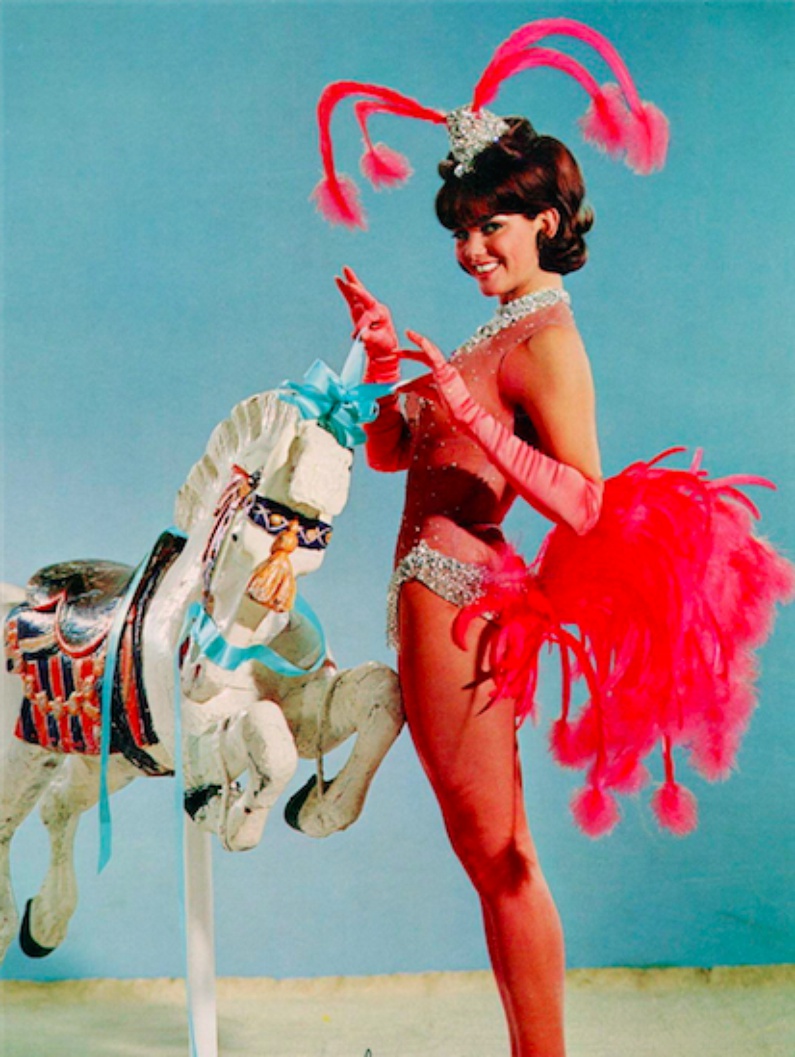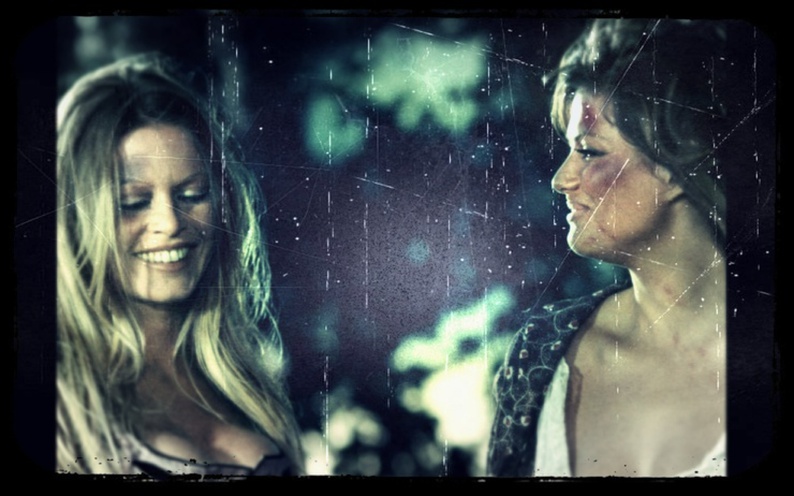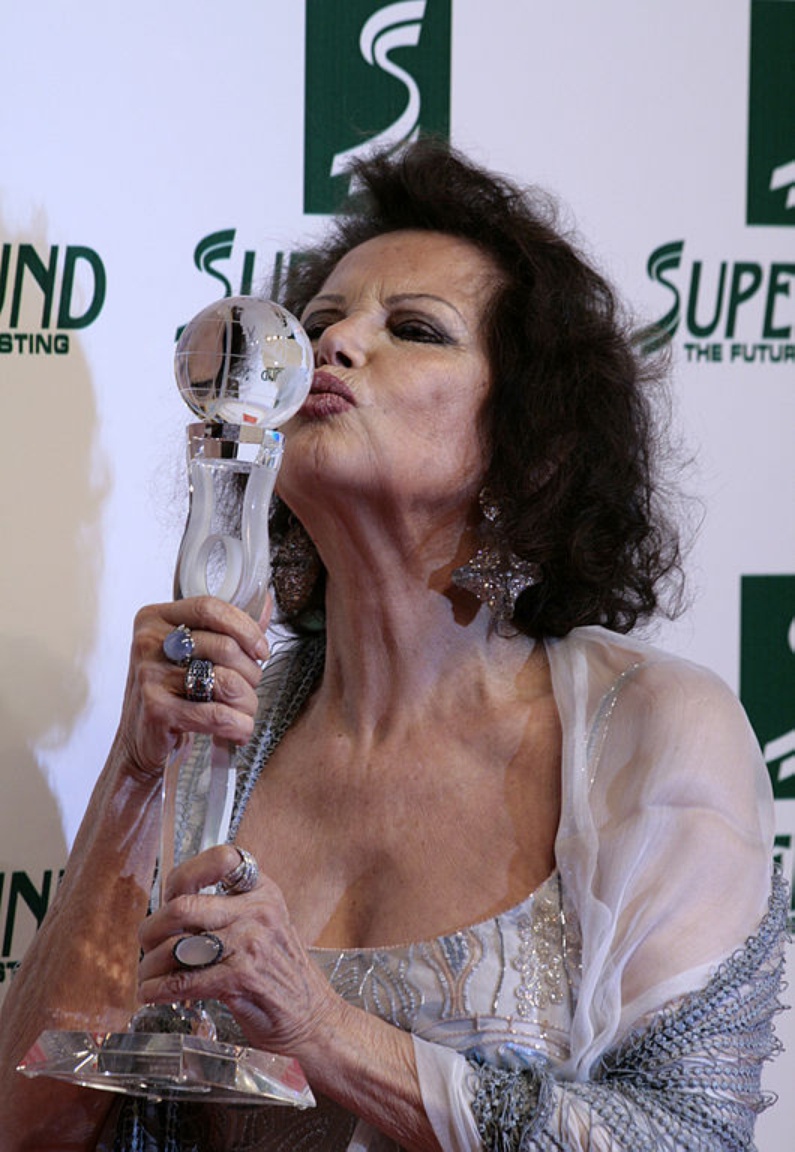
Claudia Cardinale: "I always wanted to show that women are stronger"
Published on
Translation by:
Katherine FisherShe's always had men falling at her feet, cowboys included. She's handled alligators, lions and cheetahs and left some of the most notable filmmakers in awe whilst on camera. Claudia Cardinale was one of the only actresses of the 60s to represent "strong women". At 78, "The Cardinale" opens her doors and gives us the low down on her incredible life... as well as beating us at arm wrestling.
David Niven has described her as: "along with spaghetti, Italy's best invention." She loves chocolate. Her idol is Brigitte Bardot, with whom she paraded down the Champs-Elysées squeezed into a tight dress. Despite her status as a beauty symbol, she's always avoided saying "I do".
Sporting a Mediterranean smile, and a Sicilian family with ancestors from the Isla Mujeres, she did not speak a word of Italian when she was called up to shoot films such as Girl with a Suitcase (Valerio Zurlini, 1961). Though nowadays she is still hailed as "Italy's Sweetheart."
Pasolini and Moravia pay tribute to her style. Along with Sophia Loren, she's the actress who has had the greatest influence on the ideal of Italian beauty – and cinema –around the world. A rebel, she confesses to having learnt everything about her craft without ever having attended acting school.

cafébabel: As an international diva and Italian icon you have made 144 films to date. You continue to shoot films in French, Italian and English; in which language do you feel most at ease?
Claudia Cardinale: (She bursts out laughing) I can't stop making films, huh! And you know, even at my age, not a single [face] lift. I'm natural. What is the point in all these old witches who have cheeks and lips like Barbie? My mother used to say to me: "Claudia, we can't see your wrinkles as you're always smiling!"
French is my mother tongue as my family emigrated from Sicily to La Goulette, a neighbourhood in Tunis. Tunisia was, at that time, a French protectorate. At home, my parents only spoke a version of Sicilian, so in the end I was brought up speaking French.
When I started shooting in Italy, I had a double problem. Firstly, because I have a deep voice, and secondly because I didn't speak a word of Italian! Luchino Visconti was the only director I was able to talk to – he had lived in Paris as an assistant to Jean Renoir and he spoke fluent French.
To this day, I love French just as much as Italian, all the more because, like my father, I have never denied my Italian heritage. I will never forget my first impression of the Italians. I was frightened when they spoke: they shouted and gesticulated – you would have thought that they were going to beat each other up!
cafébabel: Which actors and films have left the strongest impression on you?
Claudia Cardinale: The marvellous Rita Hayworth! During the shooting of Circus World (Henry Hathaway, 1964), I was in my trailer taking a break when Rita showed up in tears. She looked me in the eye and sobbed: "Once upon a time, I was beautiful too."
She moved me so much that I started to cry too. She was magnificent! She had this nostalgic side to her that made her all the more charming. Hathaway's film also allowed me to cross paths with the legendary John Wayne.
cafébabel: You like cowboys?
Claudia Cardinale: There is a special place in my heart for Burt Lancaster and Henry Fonda. The former played this incredible Sicilian prince of the 19th century – a fabulous cheetah.
As for the latter, I exposed myself, in every sense! For Once Upon a Time in the West (Sergio Leone, 1968), I shot one of the steamiest scenes of my whole life with him. Henry felt awkward about our sex scenes. He told me about the difficult task of "warming himself up". I would have volunteered, if his wife, watching like a hawk next to the camera, wasn't looking daggers at us!
cafébabel: With which French movie stars did you have the closest bond?
Claudia Cardinale: My favourite actress was Brigitte Bardot because she danced, sang... she knew how to do everything! I don't need to tell you the honour I felt shooting alongside her in Les Pétroleuses (Christian-Jaque, 1971). The paparazzi never left the set because they were waiting for all hell to break loose between BB the French blonde and CC the Italian brunette. On the contrary, we became great friends and filming that movie was pure craziness.
The premiere on the Champs-Elysées was the real cherry on top. We both decided on what to wear on the red carpet. Brigitte said to me: "You wear a sexy dress, and I'll turn up in a suit, smoking a cigarette!" When we arrived, the journalists were so confused!
In 2008, I was awarded the Legion D'Honneur. The letter that Brigitte sent to me was just hilarious. She made it out to "my favourite pétroleuse"!

cafébabel: What about men?
Claudia Cardinale: I have a big soft spot for 3 male stars of French cinema with which I might have had a romance, but in the end I made do with their wonderful friendship. You know, none of them have ever been able to lock me down with a ring. I am a free woman!
Alain Delon and I were, in everyone's eyes, a match made in heaven: Angelica and Tancredi! At the presentation of the restored version of The Cheetah (Luchino Visconti, 1963), we sat next to each other and we whispered: "Look, we couldn't keep our hands off each other!"
The same thing happened with Jean Sorel, co-protagonist of the incestuous relationship in Sandra (Luchino Visconti, 1965). We always used to say to each other: "Why have we not had a love story like in this film?"
Last but not least, my dear Jean-Paul Belmondo, for whom I have great affection. When I kissed him in Cartouche (Philippe de Broca, 1962), everything tingled. The more I went in, the stronger his kisses became. At one point, Philippe lost it and shouted: "Stop it children!"
cafébabel: What about the Italians? If you had to save three of them from oblivion, who would you put on a pedestal?
Claudia Cardinale: I shot a whole range of mafia films with Pasquale Squitieri... However, Luchino Visconti, Federico Fellini and Mauro Bolognini are my absolute icons.
When we were filming Bell' Antonio (1960), Bolognini called me to play one of the best roles of my career. In The Lovemakers (1961), I played Bianca, a prostitute. Playing that part was delightfully liberating because I could experiment, as an actress, with a whole new range of nuances – without even realising I was doing it.
Federico and Luchino were in artistic competition. Shooting The Cheetah and 8½ (1963) at the same time wasn't easy. They were at war with each other. Luchino – a fanatic with his theatrical realism – demanded that his Angelica have long brown unwashed hair, as was the custom in 1860. Federico wanted Claudia – A.K.A the angelic muse – to have short blonde hair. I managed to be both at the same time!
They also had completely opposite ways of working: with Fellini, the filming was a mess! There was an awful racket. Complete chaos! On the set with Visconti you could have heard a pin drop. Luchino expects such respect for his art, to the point of dramatic and flawless precision.
I had a great bond with Luchino – we conversed in French. He would spoil me with luxury gifts. It was he who developed my style.
Look at my make up, my eyes are enhanced with black pencil. Luchino said to me: "Everything that your mouth does not reveal, must be conveyed by your eyes." He loved me because I was a tomboy. He would often invite me to his manor house on the Via Salaria to watch the Sanremo Festival. We would tease each other non-stop.
Extremely suave, he always had some sort of scarf around his neck – the most sophisticated man that I have ever known. He protected me, on the set of Rocco and His Brothers (1960), there was a boxing scene and he started to shout: "Don't kill the Cardinale!" He had a great fondness for me.
In The Cheetah, there is a scene set in a ballroom where, upon entering, my character Angelica bites her lip. This small part was actually improvised. Knowing how precise Luchino could be, I feared that he would reproach me for this. However, he actually whispered to me "Bravo Claudia, that was perfect!" That was a triumphant and unrivalled moment for me – Monsieur Visconti congratulated me for my improvisation!
cafébabel: You are a star, unique in your character, a real force of nature, socially engaged. You once said that you are guided by a "star"...
Claudia Cardinale: Ever since I was little, my mother was convinced that a star looked over me. In Arabic, I believe the word for destiny is "mektoub". Everything is already written.
I did not want to be a movie star you see – I refused it at first – but film kept chasing me until it caught up. It was exactly the same situation as with men. If you say yes straight away, a man will have you, but after some time he'll get bored of you, so he will therefore look elsewhere. However, if you keep your distance, he will continue to chase after you more and more intensely.
There was a contest in which the most beautiful Italian girl in Tunis was to be crowned. A trip to Venice during the Mostra (an international film festival in Italy. ed.) was first prize. I was helping my mother in the cloakroom in the theatre where the ceremony was taking place when the organiser grabbed my arm unexpectedly and dragged me up on to the stage, before the panel of judges had made their final decision. It was all very amusing and American but hey, I won without even participating! It was from that moment on that numerous producers and filmmakers harassed my mother and father to let me to start filming.
I didn't want to myself! As a matter of fact, I thought I was ugly! They used to call me "the girl that refused to be in films." When I went to the Mostra in Venice in 1955, everyone begged me to star in a film. Reluctantly, I ended up accepting and now – like a loyal man – film won't let me go.
 cafébabel: How do you keep it up?
cafébabel: How do you keep it up?
Claudia Cardinale: I am a very wild character. I was completely reckless. I used to love boarding the train once the carriage had already started moving. I used to scrap with the boys – I always wanted to show that women are the strongest. I am a risk-taker. I have handled alligators, lions and cheetahs.
I try to be as simple as possible; my remedy to life's woes is a big smile. I don't consider myself a star, I'm just Claudia and I owe that to my fans.
I haven't done anything special to get to where I am. That is why I endeavour to make myself socially useful. Taking advantage of my celebrity status, I have campaigned throughout my career for all those women out there who are invisible and have not had the same chances as myself, who are subjected to violence.
I am a fighter. Liberal. I continue to fight for the rights of women and gay people. When gay pride is on, the float stops just down the road from me and I hear them shout in unison: "Claudia, we are with you, are you with us!?"
cafébabel: What do you think of today's cinema?
Claudia Cardinale: I often give my services for free, mainly for young Italian filmmakers. I receive so many letters from people complaining about the state of Italian cinema. This astonishes me! I mean, Scorsese, Coppola and Woody Allen recognise the avant-garde role of Italy and its culture. Rome is a magnificent open air museum. Italy is art and Italian cinema used to be spectacular.
Today? It's devastating! I can't allow everything that our great icons left behind to be brushed under the carpet – I am a woman who lives in hope! So on that note... let's roll up our sleeves! What would Luchino and Federico say if they could see us sat here like this?
Translated from Claudia Cardinale : « J'ai toujours voulu montrer que la femme est plus forte »



